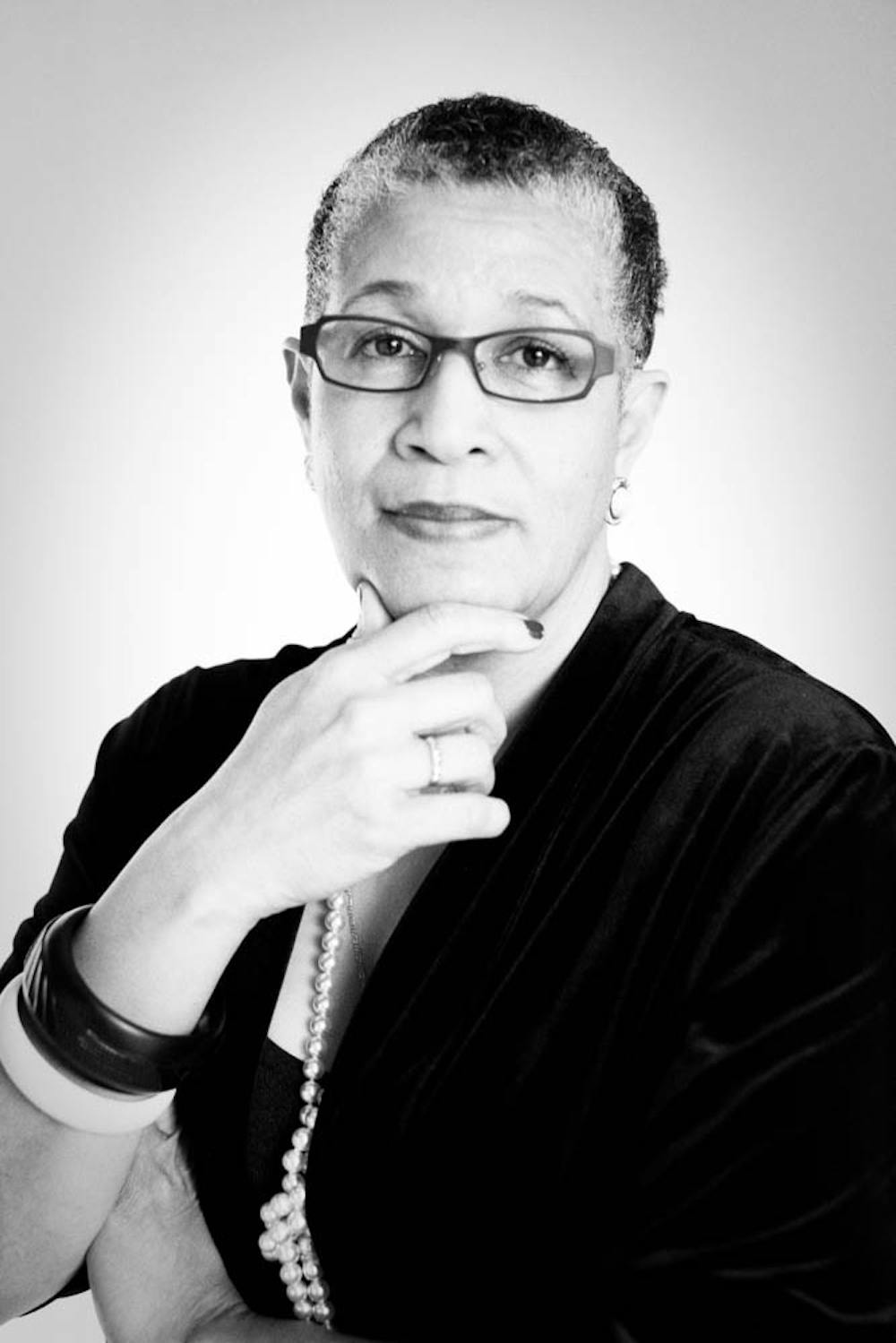Claire Andrade-Watkins stares out the window of her car, parked at the corner of Planet and South Main streets. The Cable Car Cinema and Cafe in front of her used to be the heart of the thriving Cape Verdean community she called home. But the Fox Point neighborhood she sees before her — the same space she rollerbladed through and sledded down as a kid — was at the very center of John Brown’s vision for College Hill.
“I had to come back to the belly of the beast that ate us,” Andrade-Watkins, a professor at Emerson College, said of the relationship between Fox Point’s Cape Verdean community and Brown. “Ultimately, we are inextricably intertwined — no matter who else comes to Brown, who else lives here. You exist because we do not. We cannot exist because you do.”
As part of a pilot fellowship program through the Swearer Center for Public Service, Cape Verdean-American filmmaker, historian and self-professed “force of nature,” Andrade-Watkins has been selected as a distinguished community practitioner and senior fellow-in-residence to increase students’ interaction with the Providence community.
The Swearer Center also selected Marco McWilliams as its new junior fellow and practitioner-in-residence. McWilliams said he plans to engage the Brown and Providence communities in conversations of social justice through a critical and historical lens.
Andrade-Watkins has been involved with the University for roughly 10 years as a visiting scholar at the Center for the Study of Race and Ethnicity in America from 2007 to 2014 and Center for Slavery and Justice since 2015, as well as a fellow at the Swearer Center since 2008. She looks forward to using her fellowship to engage even more intimately with the University’s campus as she further develops her acclaimed film and community-involvement projects.
As the director of the Fox Point Cape Verdean Heritage Park, Andrade-Watkins wants to continue to tell the marginalized history of the Cape Verdean Fox Point community through a trilogy of documentaries and by way of other organizational and community-based initiatives.
“My responsibility is to create a repository of well-organized knowledge that will be appropriately cited, that will not become remade into a narrative that has nothing to do with who we are,” Andrade-Watkins said. “Knowledge is power — who owns the story shapes the narrative; who asks the question owns the answer.”
As part of an initiative founded by Cape Verdean Fox Point families to tell their stories, Andrade-Watkins is working with both Brown and the Cape Verdean community to design sustainable components, such as commemorative pieces, of the Heritage Park. Once the park is up and running, Andrade-Watkins plans on giving walking tours. Through these tours, she said she hopes to help Rhode Islanders understand the real community that was uprooted by gentrification and provide the neighborhood with a clearer understanding of its roots.
Andrade-Watkins also anticipates working with Brown students on the post-production of the final film in her acclaimed trilogy, titled “Atlantic: Full Circle.” Her first two films, “Some Kind of Funny Porto Rican? A Cape Verdean American story” and “Hi, Neighbor,” craft vivid images of the vibrant Cape Verdean community and its displacement from Fox Point.
With the support of the Swearer Center, Andrade-Watkins will interact with the diverse voices of Providence through multiple screenings of Reoul Peck’s documentary on James Baldwin, “I Am Not Your Negro.” The screenings will be followed by open discussions of the documentary and supported by organizations including the Direct Action for Rights and Equality and the NAACP Providence Youth Council. Every Sunday, the Swearer Center will host free and open screenings to all local high school students.
This community-oriented work is what the fellowship is all about, said Betsy Shimberg, director of community partnership at the Swearer Center.
“We want students to be able to access knowledge in the community as they do so in academia,” Shimberg said.
McWilliams will use his fellowship at the Swearer Center to work on scholarship that examines the ways black women used armed self-defense as a normative tool of resistance. He hopes to remove the perception of “protest” from this act of self-preservation by contextualizing the phenomenon in history.
“Patriarchy sees men as the armed protectors,” McWilliams said. “But when we look at the historical record, black women have been central to this organizing tradition (of armed self-defense). (History) always stick(s) the microphone in front of the face of the man. I want to take that down. Black women are my leaders.”
McWilliams looks forward to using his fellowship as an opportunity to engage with students at Brown — especially with students of color — about acting as social change agents in various disciplines. He said he hopes to be a resource to help students think about how they move through the world while amplifying marginalized voices in whatever career the students pursue.
In addition to holding office hours, McWilliams will host a series of four workshops based on the autobiography of Assata Shakur, a member of the Black Panther party who escaped incarceration by fleeing to Cuba, where she lives today. McWilliams hopes his workshops will begin at the end of March or in early April.
McWilliams said he is also looking to contribute to “Brown’s history of sensational student activism, ”adding that “theory and practice are two sides of the same coin.”
McWilliams has “ been somebody who has asked really important questions of the Swearer Center about how we are preparing students to engage in communities,” Shimberg said. McWilliams led trainings and workshops in the past for the Swearer Center, making him a good fit for the launch of this fellowship given his history with the Brown and Providence community made, Shimberg added.





